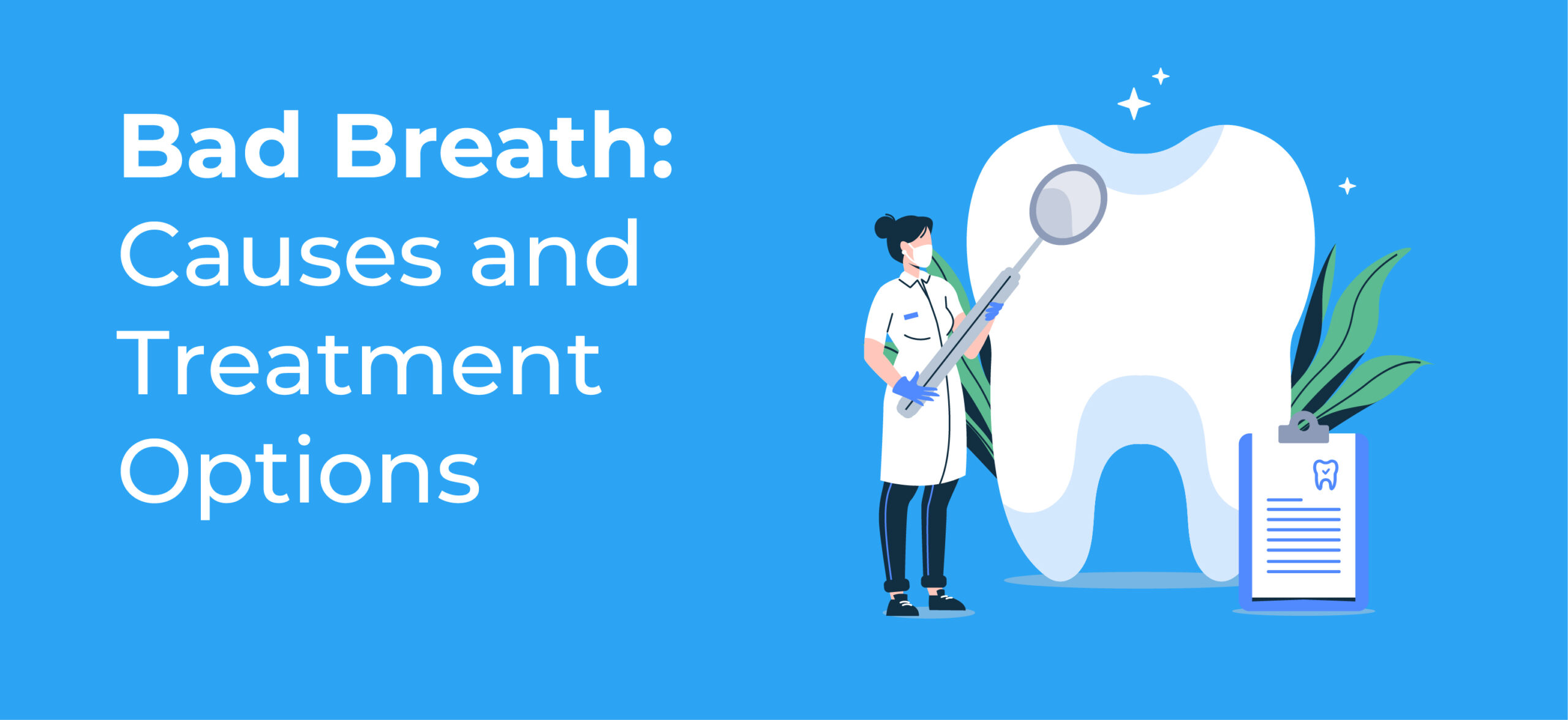Bad Breath: Causes and Treatment Options
Bad breath, scientifically known as halitosis, is a common oral health concern that affects people of all ages. It can be embarrassing and can affect your self-esteem, impacting your personal and professional life. Understanding the causes of bad breath and the available treatment options is essential for maintaining fresh and pleasant oral hygiene.
Common Causes of Bad Breath
Poor Oral Hygiene: One of the most common reasons for bad breath is inadequate oral hygiene. Bacteria in the mouth can break down food particles, leading to the release of foul-smelling sulphur compounds. Combat this with brushing and flossing.
Food Choices:
Certain foods, such as garlic, onions, and spices, contain pungent compounds that can lead to temporary bad breath. These odours can linger in the mouth even after digestion.
Gum Disease:
Periodontal disease, or gum disease, can be a significant cause of bad breath. Bacteria that accumulate in pockets formed by gum recession can produce unpleasant odours.
Dry Mouth:
A severe blow to the mouth can result in damage to a tooth’s pulp, even if there are no visible cracks or chips. In such cases, a root canal may be needed to save the tooth.
Smoking and Tobacco:
Smoking and tobacco use can lead to chronic bad breath and also contribute to gum disease, which worsens the issue.
Medical Conditions:
Certain medical conditions, such as respiratory infections, sinusitis, acid reflux (GERD), and diabetes, can cause bad breath.
Medications:
Some medications have side effects that result in dry mouth or the release of odour-causing chemicals when broken down by the body. If you have persistent bad breath, you should consult a dentist to find out the cause. There are various treatment options depending on the cause.
Treatment Options for Bad Breath
Improved Oral Hygiene:
The foundation for combating bad breath is proper oral hygiene. Brush your teeth twice a day for at least two minutes each time and floss daily. Don’t forget to clean your tongue, as it can harbour bacteria and contribute to bad breath.
Regular Dental Check-ups:
By removing the infected pulp and cleaning the tooth’s interior, a root canal prevents the infection from spreading to other teeth or even into the jawbone.
Mouthwash:
Mouthwashes can help freshen your breath temporarily, but they shouldn’t be used long-term. Look for alcohol-free mouthwashes, as alcohol can worsen dry mouth.
Stay Hydrated:
Drinking water can help maintain adequate saliva production, keeping your mouth moist and odour-free.
Dietary Choices:
Avoid foods with strong odours. Opt for fibrous fruits and vegetables that can help clean your mouth naturally.
Sugar-Free Gum and Mints:
Chewing sugar-free gum or sucking on sugar-free mints can stimulate saliva production and mask bad breath temporarily.
Treating Underlying Conditions:
If your bad breath is linked to a medical condition, such as acid reflux or diabetes, consult your healthcare provider for appropriate treatment.
Professional Breath Treatment:
In some cases, you may need professional breath treatment, which may involve specific dental cleanings and antimicrobial mouth rinses.
Specialized Products:
There are specialized products designed to help fight bad breath, such as tongue scrapers, toothpaste, and mouthwashes formulated to target the root causes of halitosis.
Bad breath is a common concern, but it’s manageable. Maintaining good oral hygiene and making healthy lifestyle choices are essential steps in preventing and treating bad breath. If your halitosis persists despite your best efforts, consult with our dental expert at Saraswat Dental Hospital for accurate diagnosis of the cause and the most effective treatment. Fresh breath is not only crucial for social interactions but also a sign of a healthy mouth. So take action today for better oral health and greater confidence in your everyday life.

